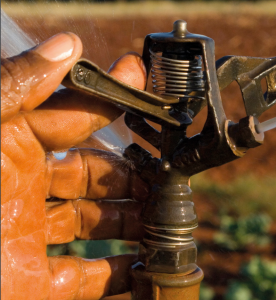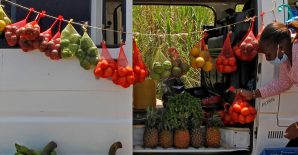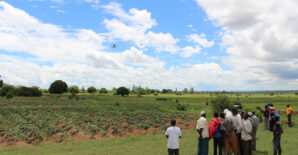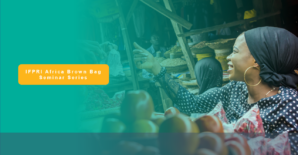
IRRIGATION THE KEY TO FOOD SECURITY: REPORT
by IFPRI | 30 January 2019
 Analysing best practices from Kenya, Ethiopia, Mali, Morocco, Niger and South Africa, the report found that yields from irrigated crops can be double or more as compared to rain-fed yields.
Analysing best practices from Kenya, Ethiopia, Mali, Morocco, Niger and South Africa, the report found that yields from irrigated crops can be double or more as compared to rain-fed yields.
Supporting more farmers to access and use irrigation systems and technologies remains crucial to food security targets across the continent, a new report says.
Food production across many African countries still relies on rain-fed agriculture, leaving farmers and rural communities vulnerable to erratic rainfall and extreme climate conditions.
The report titled Water-wise: Smart irrigation strategies for Africa launched this week highlights success stories from six African countries, among them Kenya, where greater levels of irrigation have improved harvests and incomes for farmers.
Analysing best practices from Kenya, Ethiopia, Mali, Morocco, Niger and South Africa, the report found that yields from irrigated crops can be double or more as compared to rain-fed yields.
“We must elevate irrigation to a top policy priority as a key ingredient to ensure the continent’s food security in the face of more extreme weather conditions. We need to scale up new models that put emphasis on farmer-led irrigation to enhance household level resilience to shocks,” said Dr Agnes Kalibata, the Alliance for a Green Revolution in Africa (Agra) president.
Just six per cent of cultivated land is currently irrigated in Africa, compared to 14 per cent in Latin America and 37 per cent in Asia.
“Dedicated, effective government institutions and significant increase in public investment for irrigation programmes are critical,” said Dr Ousmane Badiane, Malabo Montpellier Panel co-chair and Africa director for the International Food Policy Research Institute (IFPRI).
In Niger, one of the countries with the fastest pace of irrigation expansion, up to 20 per cent of agricultural gross domestic product (GDP) is generated through irrigated agriculture.
“Two things need to come together in smart irrigation: first, robust technology that saves water and energy and can be sustained locally, and second, sound and fair local organisations with women and men farmers in the lead of their irrigation,” said Prof Joachim von Braun, director of the Centre for Development Research at Bonn University, Germany.
This article first appeared in DAILY NATION 's website



